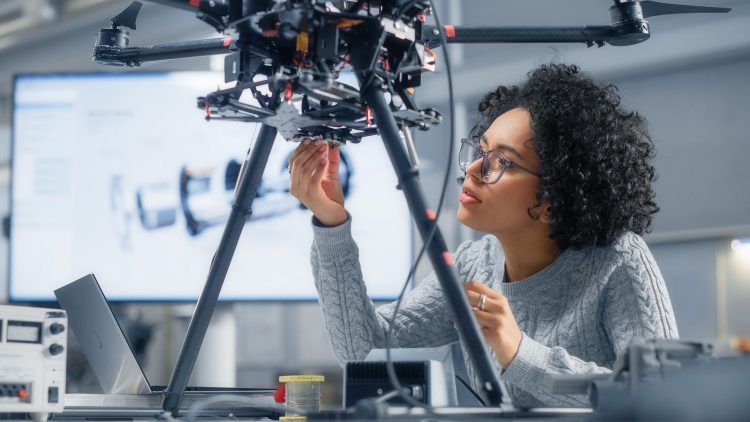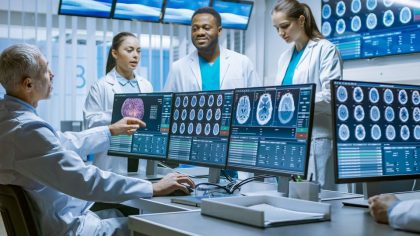Construction, maintenance: drones that physically interact with their environment
• Drones that can exert force on surfaces and manipulate objects: scientists are working on designs for a new generation of aerial robots that can interact in complex ways with their physical environment.
• At Inria Rennes, researcher Marco Tognon is also developing autonomous drones that can cooperate to transport heavy loads. An approach that is safer than entrusting tasks of this kind to individual heavy-duty machines.
• A team at ETH Zurich has recently published an article on drones that can traverse dense vegetation and slide along obstacles which could soon be used for environmental monitoring and precision agriculture.
Read the article
• At Inria Rennes, researcher Marco Tognon is also developing autonomous drones that can cooperate to transport heavy loads. An approach that is safer than entrusting tasks of this kind to individual heavy-duty machines.
• A team at ETH Zurich has recently published an article on drones that can traverse dense vegetation and slide along obstacles which could soon be used for environmental monitoring and precision agriculture.


Recommendation L.1480 Quantifies All Usage-Related CO2 Impacts, Including the Rebound Effect
Read the article
IoT: new energy-efficient chips could expand the scope of artificial intelligence in edge computing
Read the article
Competition in the race for AI shakes up the world of semiconductors
Read the article

With or without generative AI, aspiring developers still have to master the basics
Read the article
